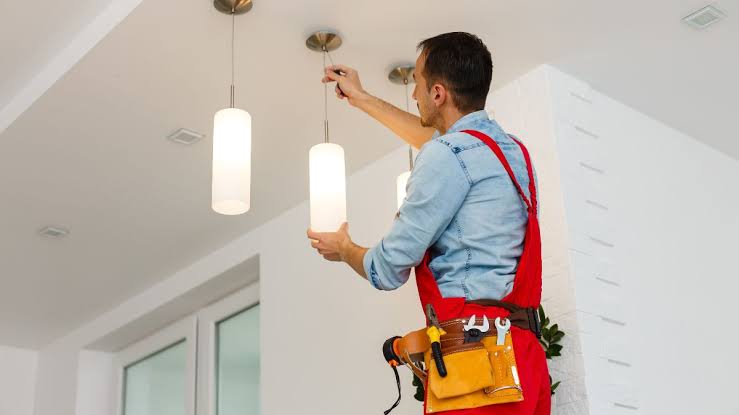Home renovations often involve several elements, from aesthetic updates to structural changes. Among these, electrical updates play a pivotal role. Whether upgrading the entire system or integrating new appliances and fixtures, the expertise of licensed residential electricians is crucial.
In the complex web of renovation work, a home electrician ensures that modern conveniences and necessities are installed precisely, meeting homeowner expectations and regulatory requirements. This article explores home electricians’ critical functions in renovation projects, detailing their role in planning, executing, and ensuring all electrical work adheres to safety standards and building codes.
Initial Assessment and Planning
Before any actual work begins, electricians thoroughly assess the existing electrical system. This step is vital to understanding the current setup and identifying potential issues like outdated wiring or insufficient capacity. Electricians must evaluate the scope of the renovation to determine the need for additional circuits or updates to the primary service panel. This stage involves detailed planning to ensure the new electrical system can safely handle increased loads and modern appliances.
Navigating Codes and Regulations
One of the most crucial aspects of an electrician’s role in home renovations is ensuring compliance with local building codes and electrical standards. These regulations are crafted to uphold safety standards and are regularly revised to accommodate advancements in technology and new safety insights. Electricians must be well-versed in these codes to avoid potential hazards and legal issues arising from non-compliance. Furthermore, their expertise ensures that all permits are correctly filed and inspections are scheduled, integral to the renovation process.
Execution of Electrical Work
They are responsible for precisely executing the planned electrical work during the renovation. This includes installing new wiring, sockets, and fixtures, as well as integrating systems such as home automation or security systems. Their work must be functional and aesthetically in line with the overall design of the renovation. The ability to adapt to challenges, such as unexpected structural barriers or changes in design plans, is also essential during this phase.
Upgrading for Energy Efficiency
Modern renovations often focus on increasing energy efficiency. They play a vital role in this aspect by installing energy-efficient fixtures, such as LED lighting and programmable thermostats. They may also advise on the best practices for reducing energy consumption, such as proper insulation for wiring and the use of automated systems that help regulate power usage.
Safety Inspections and Final Testing
After installation, they perform detailed safety inspections and testing to ensure everything operates correctly and safely. This includes testing circuit breakers, inspecting the installation of fixtures and appliances, and ensuring that all connections are secure. Final testing is critical to prevent electrical mishaps, which can pose significant risks to property and personal safety.
Collaboration with Other Professionals
Electricians must collaborate closely with other professionals, including architects, builders, and interior designers, throughout the renovation process. This collaboration ensures that the electrical components of the renovation integrate seamlessly with different structural and design elements. Effective communication between these parties is crucial to resolve any issues promptly and maintain the project timeline and budget. Electricians are indispensable in the realm of home renovations.
Their proficiency guarantees that the electrical system operates effectively, maintains aesthetic appeal, and prioritises safety while complying with current standards. By hiring a qualified home electrician, homeowners can avoid common pitfalls and ensure their renovated home meets all electrical requirements, providing peace of mind in the safety and reliability of their electrical installations. This level of professionalism is essential for the success of any renovation project, highlighting the critical role of electricians in the modern construction industry.

